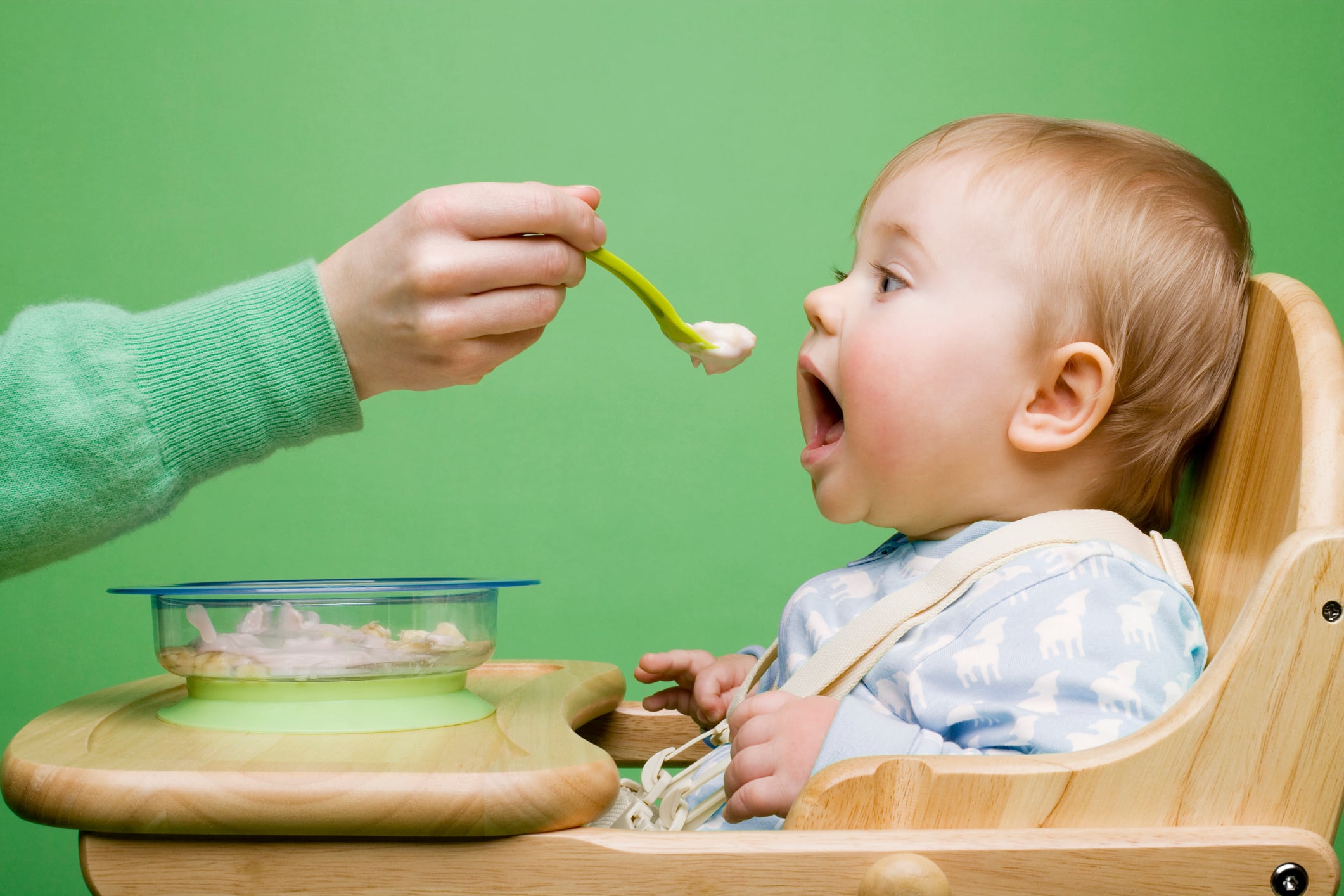Laboratory testing of 18 products manufactured by brands including Ella’s Kitchen, Heinz, Piccolo, Little Freddie, Aldi and Lidl revealed that many of the pouches were low in vitamin C and iron.
Meanwhile, some of the pouches contained more sugar than a one-year-old should consume in a day.
The testing was commissioned by Panorama and conducted by the United Kingdom Accreditation Service, and looked at the nutritional value of a fruit, yoghurt and savoury pouch from each of the six brands.
Experts have told the BBC that the products involved in the testing should be used “sparingly” and not as a replacement for homemade meal.
When BBC put this to the brands involved in the investigation, all six said that their products were intended as a complementary part of a child’s varied weaning diet.
The broadcaster also found that many baby products have marketed as ‘no added sugar’ when they in fact contain four teaspoons of ‘free sugars’ that are created during the fruit blending process. This practice was described as “intentionally misleading” by experts that spoke to the BBC.
Parents that spoke to a focus group on baby food pouches at Leeds University also admitted to feeling mislead by the way baby pouches are marketed.
“You think they are going to be nutritionally good for your child,” said one parent.
“You trust the brands. It’s really, really concerning.”
Baby food brands respond
Food Manufacture reached out to Ella’s Kitchen, Heinz, Piccolo, Little Freddie, Aldi and Lidl for a response to the BBC’s findings.
“We trust parents and carers to understand that fruit and vegetables - especially when pureed - contain natural sugars, but are also sources of fibre, vitamins, and essential nutrients,” a spokesperson for Ella’s Kitchen said.
“Comparing pureed fruit and veg to nutritionally empty products like fizzy drinks is misleading and only serves to alarm parents, potentially leading them to restrict fruit at a time when little ones should be eating more, not less.
“That said, we know we can always do more to improve nutrition in the early years, and we’re committed to doing everything we can to drive change across the whole category.”
Meanwhile, a spokesperson for Little Freddie said that its products act as a “complementary food source that helps parents introduce new flavours during the weaning process”.
“At Little Freddie, we take nutrition seriously and continually evolve and improve our recipes and products, working closely with a Paediatric Dietician to provide the highest quality options in the baby aisle,” the spokesperson continued.
A Lidl spokesperson added: “Our products are all organic and are therefore free from artificial additives, contain no added sugar or salt, and are clearly labelled to support informed choices. In alignment with NHS guidance, these products are intended as part of a varied weaning diet, not a sole source of nutrition.”
Aldi also provided a comment: “Our range of products can help parents and carers to support a child’s weaning journey by introducing a wide variety of food and flavours as part of a varied diet. Any sugar in them is naturally occurring and would be the same in a fruit puree made at home.”
Finally, a Kraft Heinz spokesperson said: “Our convenient, resealable pouches, made from natural ingredients with no added sugars, should be used as a complementary part of a varied weaning diet (6+ months) and are designed to be squeezed into a bowl or straight onto a spoon – as communicated on pack."
Elsewhere, Charles Fermor, co-founder of kids’ fruit and veg snacking brand Freddie’s Farm, expressed his frustration with the methods currently used across in the industry.
“Parents deserve real, healthy options – not ultra-processed junk food in disguise," Fermor said.
“As the industry shifts towards incorporating more vegetables, it is crucial to avoid the same excessive processing that has long dominated fruit-based purees.”





